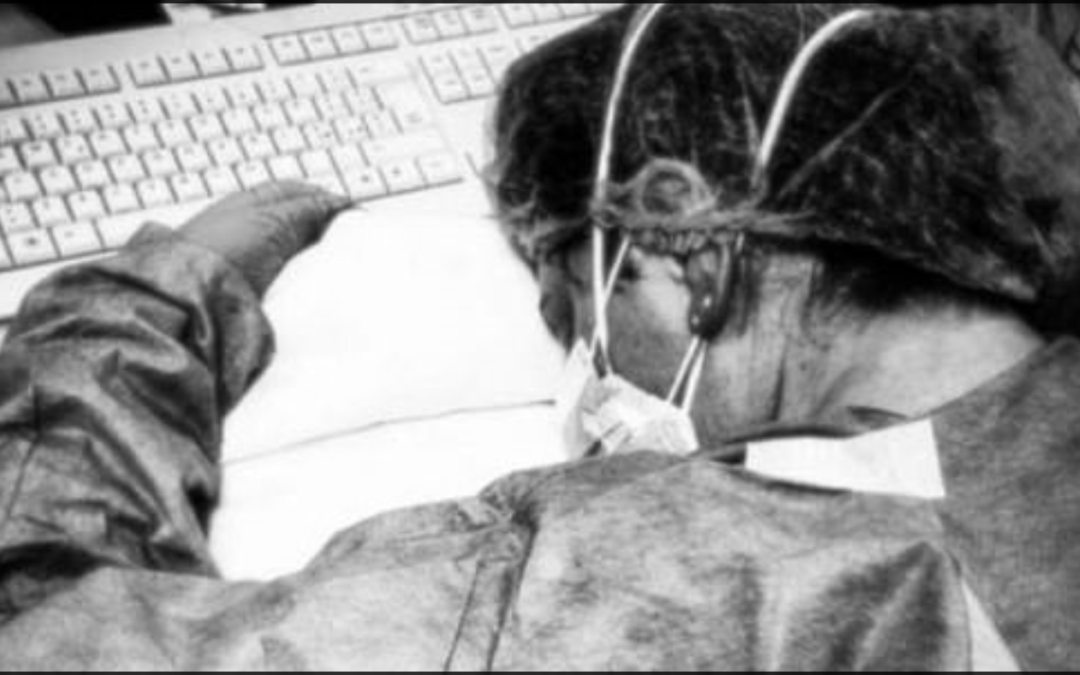LESSONS LEARNED FROM ITALIAN COVID-19 EMERGENCY
–
According to WHO «An “infodemic” of misinformation and rumours is spreading more quickly than the current outbreak of the new coronavirus (COVID-19)»(1). And this contributes to negative effects on crisis communication.
But, instead of negative effects, the battle against COVID-19 needs «collective solidarity and clear, actionable information to support communities and people affected by this new outbreak» (2).
In this way, one of the WHO suggestions is to implement «a “hero” campaign honouring caretakers and healthcare workers» (3).
Starting from an Italian case-history – the picture of Elena Pagliarini – we would like to underline the effectiveness of this approach.
On the night of 8 March 2020 a 40 year old nurse falls asleep on the desk at the end of her work, still wearing her lab coat and mask. Her name is Elena Pagliarini. She is a nurse at Cremona hospital, in Lombardy region, the Italian region most affected by the Covid-19 pandemic.
After a night spent managing the emergency and caring for a huge number of people needing intensive care and hospitalization, Elena Pagliarini fell asleep exhausted on her desk. A colleague witnessing the scene, took a picture of her and shared it on Instagram with the phrase: «Thanks for what you do» (4). Rapidly the picture became viral.
This picture – that shows the reality of nurses fighting the virus – had a big and positive impact on Italian public opinion.
At least for two reasons:
First of all, for its capacity to show, in a unique image, that the situation has become dramatic. Showing the effect of the crisis in Lombardy hospitals, and the great effort to manage it by health workers, the picture increased awareness in public opinion about the covid-19 emergency. And, consequently, the necessity to adopt correct behaviour constantly asked by the authorities. Not only for personal safety but also for avoiding the collapse of the National Healthcare System.
Secondly, showing an exhausted health worker and her heroic fight to save lives, the picture of Elena Pagliarini has immediately generated support and sympathy towards health workers and the Italian NHS. A relevant moral source in the battle against covid-19. Flowers and messages rapidly appeared in front of the hospital’s entrance to support health workers in their fight. On Saturday 15 March a solidarity balcony applause was organized to thank all Italian health workers. And a wave of sympathy moved across the country, increasing social consideration for health workers and their public function.
At the end, we should summarize the first lesson learned from Italian covid-19 communication in this way: to be more effective in fighting against covid-19, we also need to communicate the extraordinary human effort requited to face the virus.
Next to data – which is fundamental to analising and predicting the evolution of the pandemic – we need to tell the everyday heroic stories of people who are fighting the pandemic, such as health workers.
Telling these extraordinary and exemplary stories represents a due recognition for health workers and, at the same time, a great moral resource in fighting the pandemic.
Notes:
(1) A guide to preventing and addressing social stigma, World Health Organization, p. 4.
(2) Cfr. ivi., p. 5.
(3) Cfr. ivi., p. 4.
(4) Enrico Galletti, Coronavirus, la dottoressa che ha ritratto l’infermiera di Cremona: «Vorrei che questa foto fosse un invito ad aiutarci. Come? Restando a casa, Corriere della Sera, March 10 2020.

